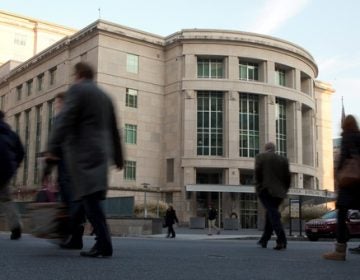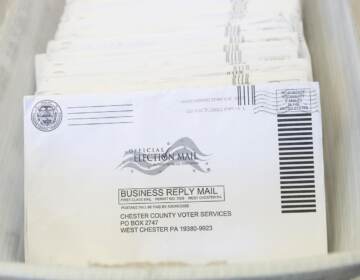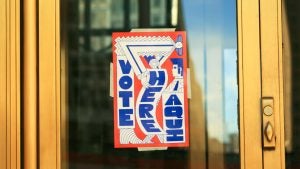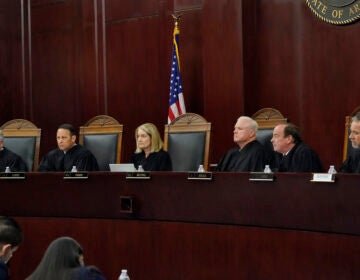What the Pa. Supreme Court’s undated ballots order means for the midterms – and beyond
Legal observers say the question of whether to count mail-in ballots with handwritten dating errors is still open.
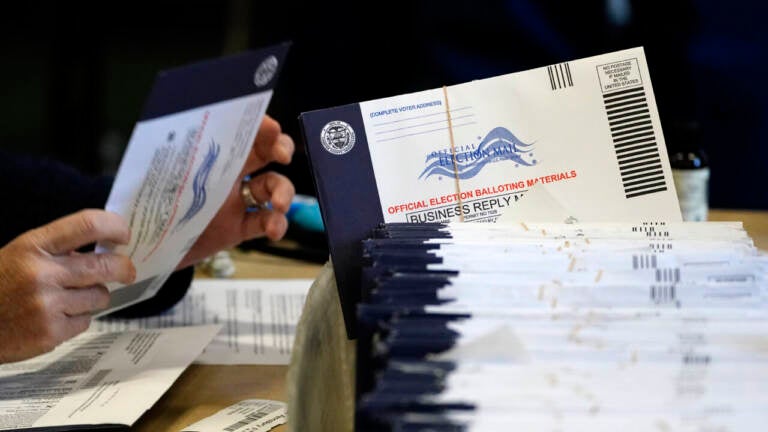
Chester County, Pa. election workers process mail-in and absentee ballots at West Chester University, Wednesday, Nov. 4, 2020, in West Chester. (AP Photo/Matt Slocum)
This article originally appeared on WITF.
Despite a Pennsylvania Supreme Court order instructing counties to not count midterm election ballots that lack a handwritten date on an outer envelope, those ballots remain a legal football that still stand a chance of factoring into this month’s contests.
Tuesday’s order capped off the first major case the state Supreme Court took without Chief Justice Max Baer, who died in September.
Experts say the high court’s move assures undated ballots won’t be counted on Election Night, but added it is not the final word on the issue. Marian Schneider, a voting rights policy lawyer at the ACLU of Pennsylvania, explained justices deadlocked on whether omitting ballots with dating issues violates a part of federal law that bans states from disenfranchising a voter over something that is “not material.”
“The bottom line is that we do need some clarity in the law both in the federal system and the state system,” Schneider said.
Those who support rejecting those ballots point to what they call the “plain language” of state law that says a mail-in voter must “fill out, date and sign” an outside secrecy envelope. That’s despite both a state and federal court ruling that judged the requirement to be immaterial. The U.S. Supreme Court vacated that federal ruling earlier this month, but did not say whether counting undated mail-in ballots is legal.
Rich Garella of the elections advocacy group Protect Our Vote Philly also said the rules around counting mail-in ballots should be clearer, especially when it comes to ballots with “incorrectly dated outer envelopes.”
“If I were a county election [official], I wouldn’t know what that means because there’s nothing in the election code about what is incorrect or what’s correct,” Garella said. “Do they mean a date that falls outside the [elections] window? To me, it’s so obviously immaterial.”
“The problem with having a date requirement when it’s meaningless is that it turns the [voter] declaration into an intelligence test,” he added. “It’s not supposed to be a test of how well people can follow instructions.”
Schneider pointed out a key part of the state Supreme Court order, which instructs county election offices to set undated ballots aside. That means even if they are not counted on Election Night, those ballots could be brought back into play if another lawsuit calls them into question.
“I think what they [the Pa. Supreme Court] were trying to do was to preserve the ability for further litigation over the issue,” she said.
Some election boards were already setting undated ballots aside – so they could quickly adjust their procedures in the aftermath of legal fights.
“Not knowing when or if they would get resolved, we wanted to segregate,” Berks County spokesperson Stephanie Weaver said. “We certainly did not want to have to go back through 20,000 ballots and find them now. It [was] much easier to catch them as they came in.”
If you voted by mail and think you might have forgotten to date your outer envelope, call your county election office. They might let you correct the error before Election Day. Allegheny, Philadelphia, Berks and Montgomery counties – to name a few – have said they are allowing their voters to do that.
If all else fails, you can show up at your polling place, surrender your mail-in ballot, and vote on a provisional one.

Your go-to election coverage
WHYY is your source for fact-based, in-depth journalism and information. As a nonprofit organization, we rely on financial support from readers like you. Please give today.


